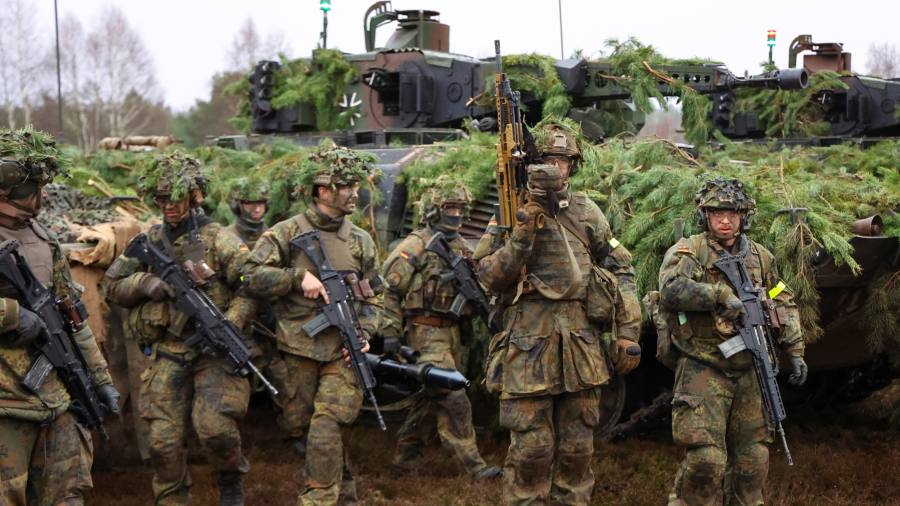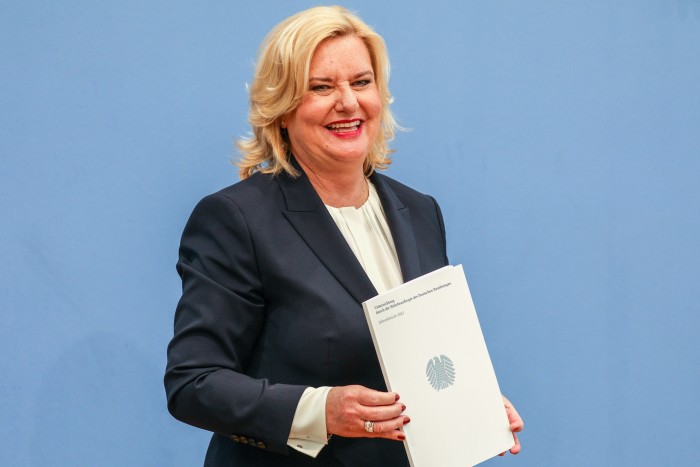
German plans to recruit 20,000 more soldiers by 2031 are not feasible, according to a top politician who argued that missing personnel posed a greater threat to the country’s armed forces than shortages in equipment.
The comments by Eva Högl, parliamentary commissioner for the armed forces, highlight the challenges for Germany as it attempts to revamp its military — a historic shift for Europe’s largest economy, which pursued pacifist policies in the wake of the second world war.
Chancellor Olaf Scholz announced the strategy just days after Russia’s full-scale invasion of Ukraine last year, describing the war as a Zeitenwende or “turning point” that required Berlin to adjust its security policy, including plans to meet a Nato commitment to spend 2 per cent of annual gross domestic product on defence.
A special €100bn fund to modernise the military is the key component of Scholz’s plan, which includes a goal to expand the German armed forces, the Bundeswehr, to 203,000 by 2031.
“I don’t think this is achievable,” Högl, who until 2020 served as a deputy leader in the Bundestag for Scholz’s Social Democrats, told newspaper Berliner Morgenpost in an interview on Sunday, citing a drop in applications for the armed forces as well as poor work conditions as the reasons for why the target was too ambitious.
“The challenge for personnel is even greater than for equipment,” she added.

Högl pointed out that the number of job applications to the Bundeswehr fell by 11 per cent last year. Total number of recruits grew, despite the smaller pool of applicants, but 21 per cent of fresh soldiers ended up dropping out.
The dropout rate was “too high” and could be partially blamed on misleading marketing campaigns, said Högl, whose role is to advocate for soldiers.
“Some have false expectations because they have seen exciting videos of the Bundeswehr, but then there are not enough tanks in a tank battalion or no internet in the living room,” the commissioner added.
Högl said she did not believe mandatory conscription, which Germany phased out in 2011, would solve the personnel problem in “the short term” but added that debate around the issue “must begin now”.
The commissioner’s comments came three weeks after she presented an annual report on the state of the Bundeswehr, which concluded that Germany’s military upgrade would take “half a century” at its current pace.
Högl is one of several politicians, including new defence minister Boris Pistorius, who have argued that Berlin’s €100bn military fund should be tripled if its military ambitions are to be achieved — especially in light of the decision to send a range of weapons to Kyiv.

